No products in the cart.
Need help? Call us:
+1 (833) 763-7837
Menu
Categories
- Accessories
- Air Purification Accessories
- Antennas
- Attenuators
- Barcode Scanners
- Batteries and Chargers
- Bottles and Dispensers
- Cables - Misc
- Carrying Straps, Lanyards and Harnesses
- Carts
- Case and Cart Accessories
- Cases
- Cathodic Protection Accessories
- Coaxial
- Crimper Accessories
- Datacom Accessories
- Dry Block Bath Inserts
- EMI Accessories
- Enclosure Accessories
- FIber Optic Accessories
- Fiber Optic Cables
- Gas Detection Accessories
- General Accessories
- GPIB Adapters
- Heating Elements
- Hipot Accessories
- Hoses - Miscellaneous
- HVAC Accessories
- Induction Heater Accessories
- Input Cards
- Jacks /Adapters /Plugs /Clips /Terminators/Coaxial
- Jobsite Storage and Cabinets
- Knockout Accessories
- Lab Accessories
- LCR Test Fixtures
- LED and LCD Displays
- Manuals
- Material Handling Accessories
- Microphones
- Microscope Accessories
- Motors
- Options
- Pinhole/Holiday Detector Accessories
- Plumbing Accessories
- Precision Measuring Instrument Accessories
- Pressure Calibrator Modules
- Printers and Printing Supplies
- Probes
- Rack Mounts and Stands
- Repair Parts and Fuses
- Scale Accessories
- Shunts
- Software
- Soldering Accessories
- Spectrum Analyzer Accessories
- Static Control Accessories
- Switch and Semiconductor Modules/Access
- Test Fixtures
- Test Leads and Instrument Accessory Kits
- Thermal Imager Accessories
- Training and Education
- Underground Utility Location Accessories
- Vibration Accessories
- Video Accessories
- Voltage Transformer
- Warranty and Calibration
- Amplifiers / Preamps / Preamplifiers
- Audio Equipment
- Automotive Test Tools
- Battery Testing
- Blower Door and Duct Testing
- Borescopes / Boroscopes
- Clamp Meters
- Cleanroom
- Color and Appearance
- Conduit Benders
- Current Sensors
- Datacom and Networking Products
- Dataloggers Data Acquisition
- Decade Boxes
- Distance Meter
- Electrical Parts and Products
- Cable and Wire
- Cable Reels
- Electrical Cord
- Electrical Jumpers and Pigtails
- Electrical Parts
- Electrical Plugs and Connectors
- Line Splitters
- Lockout / Tagout
- Outlet Boxes
- Pulling Products
- Pushbutton Pendant Stations
- Receptacle Testers
- Temporary Power Distribution
- Terminal Blocks and Strips
- Terminals and Crimps
- Wall Plates
- Wire Management
- Wire Ties
- Work Lighting and String Lighting
- Enclosures and Boxes
- Environmental Testers / Physical Property
- Anemometer / Air Flow
- Barometers and Altimeters
- Chlorine Tester
- Dissolved Oxygen Meter / Fluoride
- EMF / ELF Meter
- Heat Index Monitors
- Humidity Meters
- Hygrometers
- Moisture Meters
- Nuclear Radiation Monitors
- PH / ORP Meters
- Psychrometer
- Refractometers / BRIX
- Scales / Weight
- Sound Level Meters
- Stopwatches / Timers / Clocks
- Water Quality Accessories
- Water Quality Meters
- Weather Measurement
- Wind Tunnels
- Flow Measurement
- Force / Torque / Hardness Meters
- Gas Detection
- Ground Testers
- Health and Safety
- HVAC Equipment and Instruments
- Automotive RRR Machines
- Brazing
- Combustion Analyzers
- Hose Adapters, Valves and Parts
- HVAC - Testing - Adjusting - Balancing
- HVAC Equipment - Misc
- HVAC Manifolds and Gauges
- HVAC Vacuum Pumps
- Refrigerant Leak Detectors
- Refrigerant Recovery Machines
- Refrigerant Recovery Tanks
- Smoke Pump Test Kits
- Tubing Tools
- Vacuum Gauges
- Hydraulic Cylinders
- Indoor Air Quality
- LCR Meters / Impedance Measurement Products
- Leakage Detectors
- Life Sciences Equipment
- Autoclaves and Sterilization
- Bunsen Burners
- Centrifuges
- Cold Storage
- Colony Counters
- Dry Block Heaters and Cooling Blocks
- Environmental Test Chambers
- Flame Photometers
- Flocculators
- Fluidized Bed Baths
- Gel Imaging Electrophoresis
- Glassware Washers-Dryers
- Heating Mantles / Electromantles
- Homogenizers
- Incubators
- Kjeldahl Apparatus
- Lab Apparatus - Misc
- Laboratory Ovens
- Laboratory Pumps
- Laboratory Water Purification Systems
- Magnetic Bead Based Purification
- Melting Point Apparatus
- Mixers Rotators and Stirrers
- Pipettes
- Reaction Station
- Recirculating Chillers / Coolers
- Refrigerated Heating Circulators
- Rotary Evaporators
- Shakers and Rockers
- Slide Warmers
- Spectrophotometer
- Thermal Cycler / PCR
- Titrators
- Water Baths and Liquid Baths
- Logic Analyzers
- Materials Testing
- Megohmmeter / Insulation Resistance Testers
- Micro-Ohmmeter / Milliohmmeter
- Microscopes
- Multimeters
- Network Analyzer
- Oscilloscopes
- Panel Meters
- Personal Protective Equipment
- Phase / Motor / Transformer Testing
- Power Measurement
- Power Supplies
- Process / Calibration
- Programmers / IC and RAM Testers
- Protocol Analyzers
- Prototyping
- Radiometric
- Reliability / Preventative Maint / Rotational
- RF, Microwave, EMI
- Safety Testing / Surge Testing
- Signal Generators / Counters
- Signal Level Meters - CATV / CCTV / Satellite
- Solar Analyzers
- Soldering Equipment
- BGA Rework Station
- Chemicals
- Cleaning Pins and Drills
- Depaneling Systems
- Desoldering Equipment/Rework Stations
- Desoldering Irons
- Dispensing Equipment
- Flux
- Flux Remover
- Fume Extraction
- Hot Air Guns
- Hot Air Pencils
- Lead Forming Equipment
- Nitrogen Generation
- Nozzles
- PCB Supports and Holders
- Pre-Heater
- Solder
- Solder Wick
- Soldering Equipment
- Soldering Irons
- Soldering Pots
- Soldering Robots
- Soldering Stands
- Soldering Stations
- Soldering Tip Cleaners
- Soldering Tip Thermometers
- Soldering Tweezers
- Sponges and Brass Wool
- Thermal Wire Strippers
- Tips
- Vacuum Pick-Up Tools
- Sporting / Hunting / Law Enforcement Optics
- Static Control
- Surveying / Construction Measurement
- Thermal Imagers
- Thermometers
- Thickness Gauges
- Tools
- Blackeners
- Cable Cutters
- Cable Strippers
- Cable Tie Guns
- Combination Squares
- Conduit Tools
- Crimpers
- Cutters
- Cutting Tools
- Datacom / Fiber Optic Tools
- Drill Bits and Sets
- Drill Rod
- Dry Lubricants
- Electric Screwdrivers
- Feeler Gage
- Fiber Optic Cable Tools and Fiber Scopes
- Flashlights and Headlights
- Ground Flat Stock
- Hex Drivers, Torx Drivers
- Hose Benders
- Hose Clamps
- Hot Melt
- HVAC Service Tools
- Insulated Tools
- Keystock
- Knockout Tools
- Layout Fluid
- Level Measurement
- Maintenance Kits
- Multi-Tools
- Other Hand Tools
- Pliers
- Pneumatic Hand Tool Operators
- Power Tools
- Probes & Scribes
- Punch & Die Sets
- Punchdown Tools
- Remote Hydraulic Pumps
- Screwdrivers
- Shims & Shim Stock
- Sockets & Ratchets
- Spatulas
- Telecom Service Tools
- Telescopic Tools
- Threaded Rod
- Tool Kits
- Tool Wrap
- Tweezers
- Vises
- Wire
- Wire Strippers
- Wrenches & Wrench Sets
- Toys / Cool Stuff
- Transmission Line/Station Testing
- Cable Testing
- Circuit Breaker Testers
- Corona Detection
- Dielectric Oil Testing
- High Current Detectors / Indicators
- High Voltage Detectors / Indicators
- Hot Sticks
- Phasing Sticks
- Primary Injection Test Equipment
- Safety Equipment
- Secondary Injection Test Equipment
- SF6 Gas Leak Detectors
- Transformer Testing/TTR
- Transmission Cable Height Meters
- Video Distribution Equipment
- Video Test Equipment
- Voltage / Continuity and Non-Contact Testers
- Wire Tracers / Circuit Breaker Tracers
- Workbenches
Hioki EV HV SYSTEM ADV TEST KIT – Advanced EV HV System Test Kit (FT3700-20, DT4261, RM3548, Z5041, 9465-11, IR4059, 5 X Z5020, C0213)
Brand:
12 people are viewing this product right now
$3,386.00
Shipping calculated at checkout.
Estimated delivery:4 days
EV HV SYSTEM ADVANCED TEST KIT (FT3700-20, DT4261, RM3548, Z5041, 9465-11, IR4059, 5 X Z5020, C0213)
- Combines several components and accessories used in testing of electric vehicle systems
- RM3548 portable DC resistance meter
- IR4059 insulation resistance tester
- FT3700-20 handheld infrared thermometer
- DT4261 digital multimeter
- Z5041 protector case for RM3548
- 9465-11 pin-type test leads for RM3548
- 5 X Z5020 magnetic straps for multimeter, DC resistance tester, and IR tester
- C0213 carrying case to accommodate all instruments
SKU:
Hioki EV HV SYSTEM ADV TEST KIT
Tags: Micro-Ohmmeter / Milliohmmeter, Milli-Ohmmeter
Categories: Milli-Ohmmeter
Have any Questions?
Feel free to Get in touch
Guarantee Safe and Secure Payment Checkout
Description

Hioki EV HV SYSTEM ADV TEST KIT
- Combines several components and accessories used in testing of electric and hybrid vehicle systems
- RM3548 portable DC resistance meter and IR4059 insulation resistance tester
- FT3700-20 handheld infrared thermometer and DT4261 digital multimeter
- Z5041 protector case for RM3548
- Adds magnetic straps and pin-type test leads to standard EV HV system test kit
Advanced EV HV System Test Kit (FT3700-20, DT4261, RM3548, Z5041, 9465-11, IR4059, 5 X Z5020, C0213)
The items below combine to form an ideal kit suitable for EV maintenance testing. Included in the test kit are meters for measuring high and low resistance values as well as voltage (among the other features common to a multimeter). A thermometer provides the ability to determine if battery packs are exhibiting symptoms that warrant further exploration. Two separate cases provide protection and storage for the equipment.
This advanced kit adds five Z5020 magnetic straps for securing the multimeter, DC resistance tester, and IR tester as well as pin-type test leads for the RM3548 milliohmmeter.
Equipotential Bonding
The RM3548 is a portable 4-terminal DC miliohmmeter. The resistance measurement conducted by this meter with a measurement current ranging from 500 nA to 1 A satisfies the ECE-R-100 measurement current requirement. The meter offers stability and precision in a wide resistance measurement range of 3 milliohms (with 0.1 microohm resolution) to 3 megaohms (with 100 ohm resolution).
This equipotential bonding test is performed after the installation or replacement of high-voltage (HV) components. In this test, the technician needs to verify that all chassis, shields, and other components are electrically connected without any issues. The resistance of the ground connection at the area where the chassis of the vehicle and the HV components are connected is measured. If the resistance value is high or substantially unstable (high variability), the HV component’s connection may have been improperly installed.

Insulation Resistance
Insulation resistance testing is an essential part of maintenance and inspection to prevent electric shocks from battery electric vehicles (BEVs). This is especially true since the test checks for proper insulation that protects from the dangerously high voltages of EVs. Furthermore, this test will continue to grow in importance as the EV market keeps increasing the voltages of EVs year-on-year. In this test, we verify that there are no flaws in the insulation between the high-voltage (HV) system and the ground. Important measurement locations include inverter, motor, chassis, HV cable, and HV batteries.
The IR4059 insulation resistance tester is a great choice for measuring BEV insulation. For the HV range (500 V or 1000 V), the IR4059 has a safety feature that requires the technician to unlock in addition to choosing the voltage to prevent erroneous operation of applying high-voltage to low-voltage equipment. The included L9788-10 lead with remote switch and LED indicator allows you to start and stop the measurement at your fingertips and provides pass/fail judgments while the measurement is in progress.

EV Battery Temperature Measurement
Measure the surface temperature of the HV battery with a non-contact thermometer. In this inspection, check for variations in temperature as well as areas of high temperature. These may indicate issues that need further investigation.
The FT3700-20 is an infrared thermometer with a two-point laser marker that measures the average surface temperature inside a circle formed by the two points. It features a pistol design with an easy-to-see display. A full menu of basic measuring functions is available. Infrared temperature guns identify the surface temperature of an object by measuring the energy level of the infrared rays emitted from the object without physically contacting it.

Zero-Voltage Measurement
This measurement is conducted to prevent electric shock and to make sure that the vehicle is shut down. Safety from electrocution is ensured by measuring the voltage on surfaces that are likely to be touched when unplugging the HV connector. In this test, voltage should be measured between specific points and the chassis ground of the vehicle. It should show up as zero volts (0 V).
The DT4261’s terminal shutters make it physically impossible to insert the wrong test lead when measuring. The LoZ (low input impedance) mode eliminates the effects of ghost voltages induced by the stray capacitance of the measurement target and the high input impedance of the multimeter. Installing the Wireless Adapter Z3210 (sold separately) to the DT4261 allows Bluetooth connections. By connecting the instrument to the mobile app GENNECT Cross, you can digitize and manage your measurement data.

Protect the Equipment

Z5041 Protector Case for RM3548

C0213 Carrying Case
The Z5041 protector case fits around the RM3548 and provides a sure grip for the user, while the C0213 carrying case is large enough to accommodate all instruments.
Advanced Kit Features

9465-11 Pin-Type Test Leads

Z5020 Magnetic Straps (x5)
The 9465-11 pin-type test leads feature a 153-inch length for the black lead, and the magnetic straps are used to hang the multimeter, DC resistance tester, and IR tester.
Micro / Milli / Meg Ohmmeters/Megohmmeter / Insulation Resistance Testers Template | |
|---|---|
| IR Test Voltage | 1,000 V, 125V, 250 V, 50 V, 500 V |
| Maximum Insulation Resistance | 4 G Ohms |
| Type | Battery |
| Minimum Insulation Resistance | 0.05 M Ohms (0.00005 G Ohms) |
| Display (Megohmmeter) | Digital |
| Continuity Test | Yes |
| Live Circuit Voltage Detection | Yes |
| Power Supply | Battery |
| CAT Rating | III |
| CAT Voltage | 600 V |
Micro / Milli / Meg Ohmmeters/Milli-Ohmmeter Template | |
| Style (Milli-Ohmmeter) | Portable |
| Line Power or Battery power | Battery Power |
| Selectable Ranges | Yes |
Product General Attributes | |
| Safety Approval | CE |
| IP Rating | IP40 |
Be the first to review “Hioki EV HV SYSTEM ADV TEST KIT – Advanced EV HV System Test Kit (FT3700-20, DT4261, RM3548, Z5041, 9465-11, IR4059, 5 X Z5020, C0213)”
You must be logged in to post a review.
Manuals/Guides
Related products
Sale
AEMC 6255 – 10A Micro-Ohmmeter
Our team of knowledgeable professionals is here to help you make informed decisions. Whether you need product recommendations, technical support, or guidance on your purchase, we're just a click away.
Contact Us Now:
📧 sales@nestesinstruments.com
📞 +1 (833) 763-7837
Let us assist you in finding the perfect solution!
Contact Us Now:
📧 sales@nestesinstruments.com
📞 +1 (833) 763-7837
Let us assist you in finding the perfect solution!


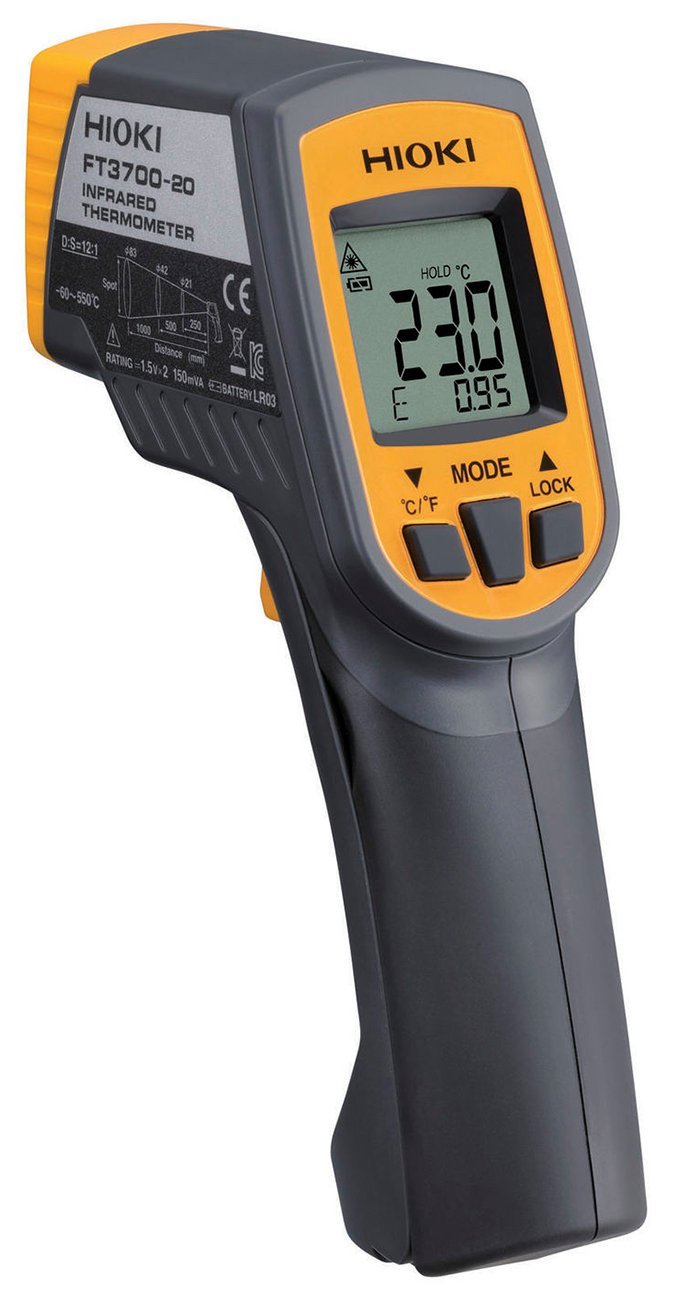
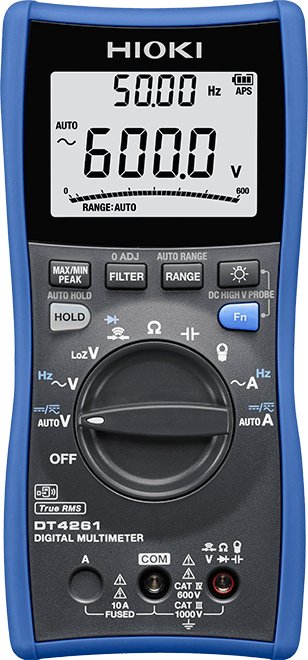


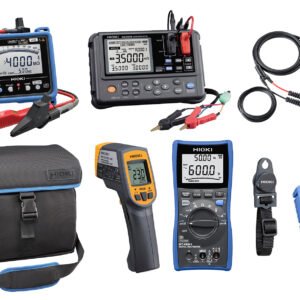



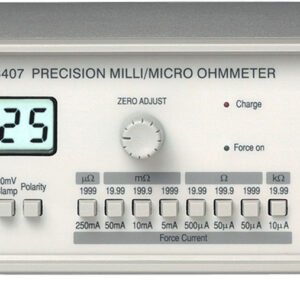

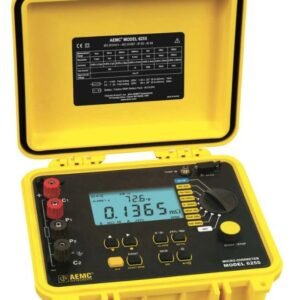


Reviews
There are no reviews yet.